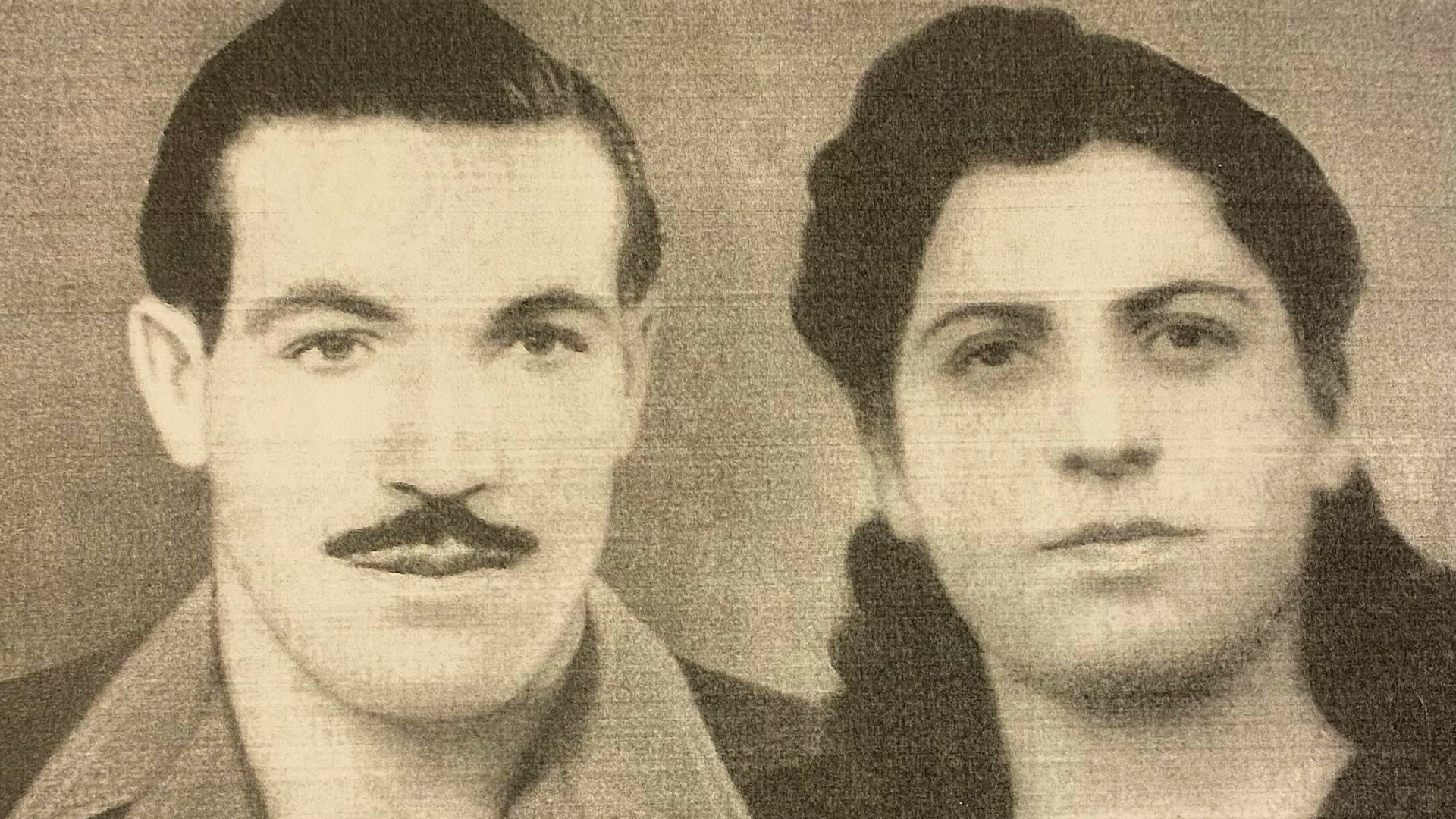Billy Cotsis talks about his last Great Uncle Antonis Alexandris who survived several concentration camps. He died at the age of 102 years old last month.
The brutality and horrors of a concentration camp will always impact upon those unjustly incarcerated, especially in the 1940s. Whether it was the Jewish people or others such as dissidents, communists, people with a disability, suspected GLBT or those caught at the wrong place at the wrong time.
In the USA, anyone remotely looking “Japanese” ended up interned and of course, we know of the horrors of concentration camps under Imperial Japan. The skeletal features of many brave Aussies or Asians or the brutal beatings of American hero John McCain, are ingrained in history and should never occur again. Alas, we are mere “humans” and these brutal instances of how we treat our fellow human beings remain, be it Vietnam, Rwanda, Gaza, the list goes on.
My Great Uncle Antonis Alexandris was born around 1922, one of nine children who lived in the beautiful village of Skoutaros, where my mother was born in 1948. I met him at various stages in my life.
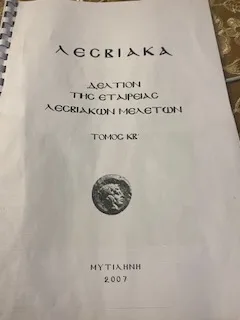
In 1987, I was ten years old. We spent a few months on Lesvos that year. My mother, Maria Cotsis, who revered her uncle, would spend days at a time at his property in Moria, five kilometres from Mytilene city.
My Great Aunt Ellie would tell us that for years, her husband avoided soap because the Nazis would turn prisoners into soap. His friends or those he met, were turned into soap. Gassed. Killed. He had nightmares of the horrors for decades.
My Great Uncle one day acknowledged the horror. The pain of losing innocent human beings to feed the sick ideology of fascist leaders.
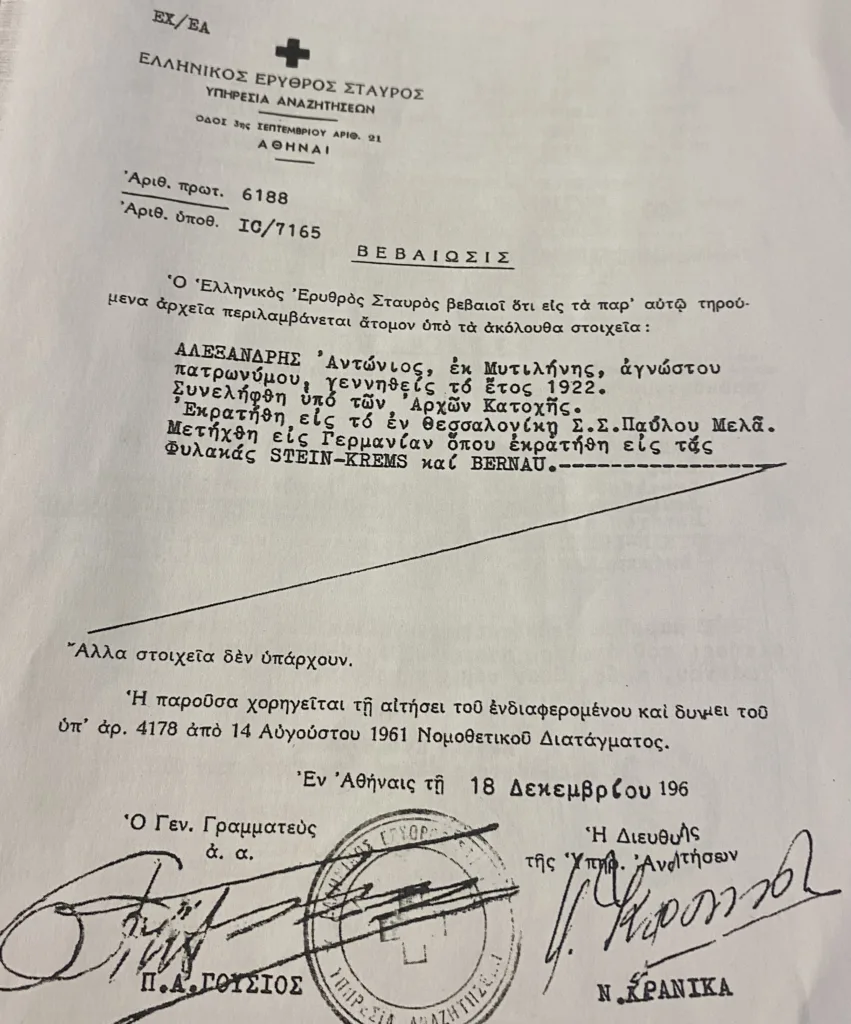
At this stage of my life, I already hated the NAZI regime and the Americans for some of their own atrocities, but as my Great Uncle told us, it was American troops who liberated his camp in 1945. I will return to this in a moment.
My Great Uncle and his brother Konstantinos were imprisoned along with others in 1941 for daring to stand up to Nazis who kept raiding businesses on Lesvos. The brothers were imprisoned along with dozens of others. He was just 19 years old at the time. When their mother twice tried to bring them food, the Nazis beat her up.
In November 1942, sick of Antonis and his brother’s rebel behaviour while in prison, they were sent to various concentration camps in Europe. They were interned at the Pavlos Melas concentration camp in Thessaloniki then Krems-Stein where 150 Greeks were massacred and Bernau camps as the Nazi scum retreated from Greece. The Bernau camp was for hard labour, strong men were imprisoned to help produce for the Nazis peat.
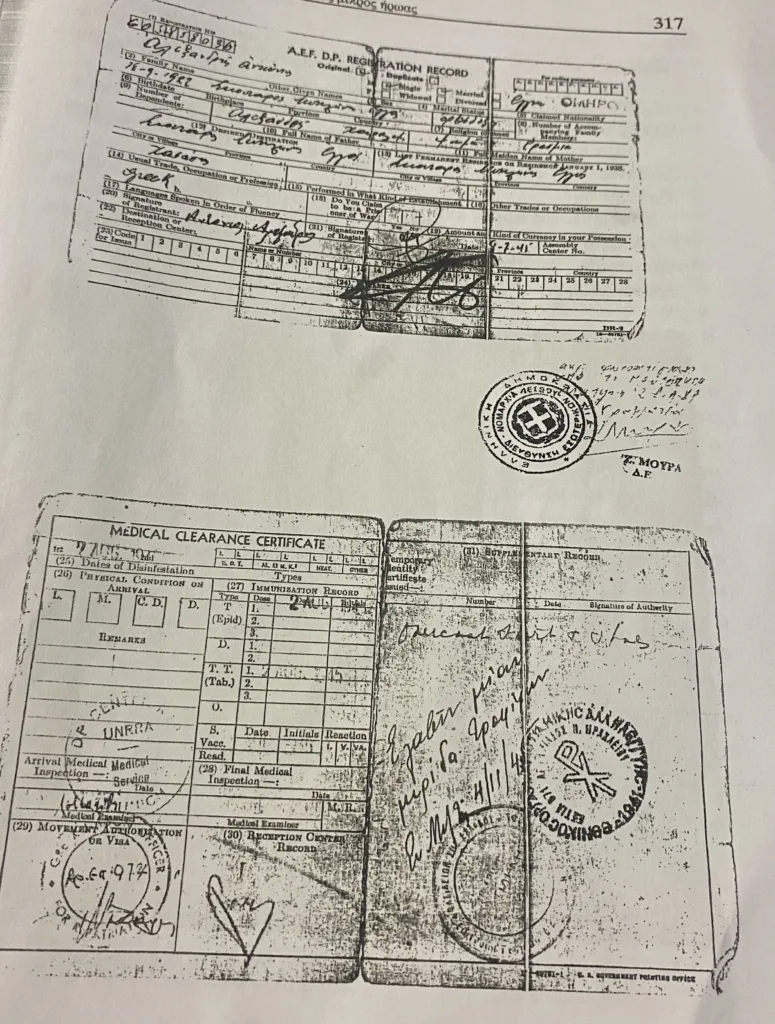
He told us how he and his brother managed to escape the evil guards and hide in chimneys for three days as a final liquidation was taking place. They had been told it would be a general bath for all, yet the brothers knew that Nazis were not to be trusted. They escaped from within and hid. No water, no food. At one stage they were spread eagle holding on within the confines of the chimneys as the guards came looking for them. They were close to death until the US troops intervened.
The Russians were a further 35 kilometres behind them and one must wonder if they would have ended up in Siberia if the Americans didn’t arrive.
The Americans gave the prisoners protection and papers. The brothers joined an American escort into Venice and then Milan, staying at each place for a month. They eventually arrived in Patras where they called their relieved mother. A few days later they were home, Skoutaros.
Antonis’ sister Cassandra is my own mother’s mum. When my mother, Maria, was about eight years old, yiayia Cassandra died from the complications of childbirth. Yiayia was taken to Athens for emergency surgery and hospital care. It was my Great Uncle and Great Aunty who accompanied a dying yiayia Cassandra to Athens. He did all he could to save my grandmother and paid for her bills. My “pappou” should have been there, though was probably more interested in hanging out at the café than matching the care and dedication of my Great Uncle, who despite his own traumas stood tall doing the right thing by his sister.
My mother never forgot his support.
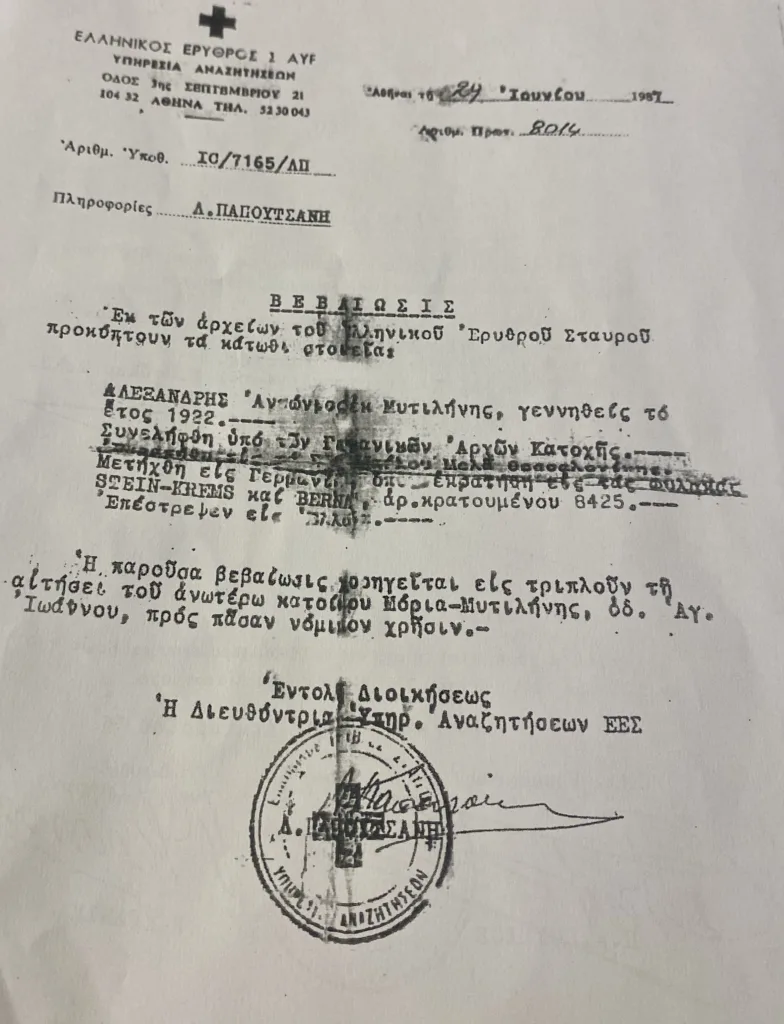
In 1987, as a small boy playing in my Great Uncle’s farm, I absorbed the humility of the man and the lessons of life. It was a happy period for me. Surrounded by cousins, animals, fresh food, good weather, and Greek TV, how could I not enjoy paradise.
When we left paradise in October 1987, I drifted from the Greek world and Greek scene. I did not return to paradise until 1999, once again visiting my Great Uncle. Very much revered by the island as he led military parades and his heroism in surviving Nazi brutality in Europe was never forgotten.
During the 2000s, I would bump into him at festivals where he would have a market stall. His big moustache and occasional headdress that he would wear reminded me of the warrior he was. He had learnt how to speak Turkish and would often visit the Bazaar in Aivali to purchase products and meet Turkish friends. He was one of the first on our island to truly understand that we may have a negative and brutal history with Turkey, yet we can and must get along. Perhaps it had been lessons out of his heartbreaking time in concentration camps, perhaps it was just his character, he just seemed to know what was right.
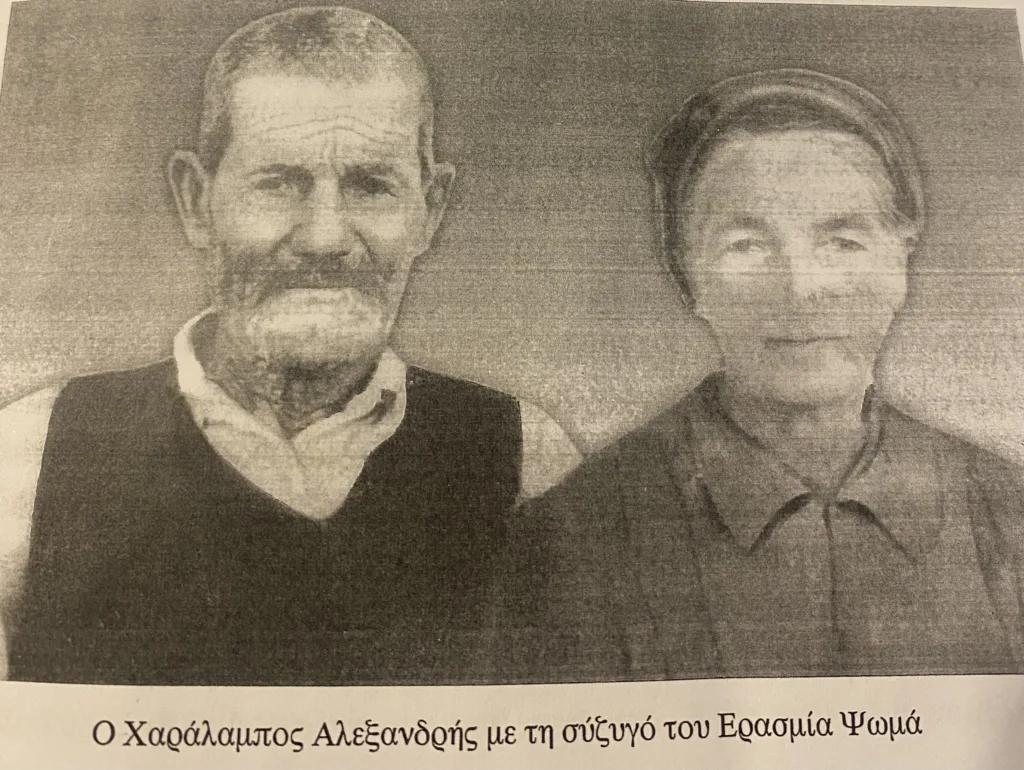
My mother, sister Sophie Cotsis, MP for Canterbury, and her two children visited Moria to see Antonis earlier this year. He was in bed for every visit and unable to move much, fighting to live on despite the calling of time from above.
A loving family man. One of his son’s is the renown singer and recording artist Dino Alexandris, he remains heartbroken by the recent loss of his father.
Lesvos has had many heroes in its history yet one humble man from a rural village stood tall. He stood up to the NAZIs and he stood tall as a family man. We can learn a thing or two from such a hero.
*Billy Cotsis is the author of The Aegean Seven Take Back The Stolen Marbles
